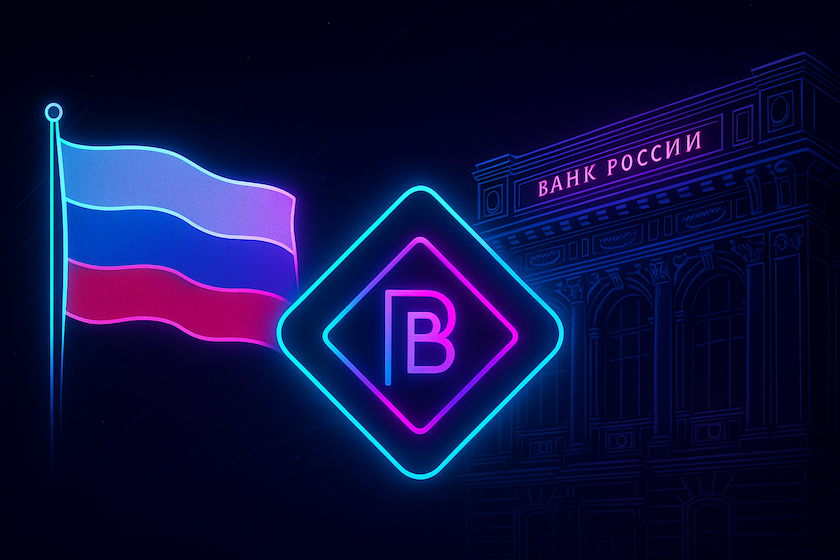Russian Crypto Exchange for Super-Rich Investors
🚨 Russia is preparing to shake up its crypto policy by launching a regulated exchange exclusively for the ultra-wealthy.
 🚀 Russia is moving ahead with plans to launch a regulated Russian crypto exchange tailored exclusively for “super-qualified investors,” according to official statements made on April 23, 2025. The initiative, led by the Finance Ministry and the central bank, marks a significant pivot in Russia’s crypto policy after years of regulatory uncertainty.
🚀 Russia is moving ahead with plans to launch a regulated Russian crypto exchange tailored exclusively for “super-qualified investors,” according to official statements made on April 23, 2025. The initiative, led by the Finance Ministry and the central bank, marks a significant pivot in Russia’s crypto policy after years of regulatory uncertainty.
🏛️ Finance Minister Anton Siluanov stated that the Russian crypto exchange would operate under a special experimental legal regime, outside the standard financial system. This approach aims to bring transparency to digital asset transactions and pull crypto activity “out of the shadows.”
💼 “Together with the central bank, we will launch a crypto exchange for super-qualified investors,” Siluanov said. “Crypto operations will be legalized and regulated under this framework.” The Russian crypto exchange is part of a broader push to integrate digital assets into Russia’s financial strategy amid economic isolation and sanctions.
📈 The plan to create a Russian crypto exchange builds on a March 12 proposal by the Bank of Russia, which introduced the idea of a three-year trial framework for limited crypto trading. Only elite investors—dubbed “super-qualified”—would be allowed to participate under strict financial criteria.
💰 To qualify for access to the Russian crypto exchange, investors must reportedly possess assets exceeding 100 million rubles (approximately $1.2 million) or earn a yearly income of at least 50 million rubles (roughly $602,000). These criteria are still under review, according to Osman Kabaloev, Deputy Director of the Finance Ministry’s Financial Policy Department.
🔍 “There will likely be broad discussions on adjusting these indicators,” Kabaloev noted, hinting that the current thresholds may evolve as the Russian crypto exchange nears rollout.
⚖️ While cryptocurrency use for payments remains illegal under Russia’s “On Digital Financial Assets” law since 2021, the emergence of a state-backed Russian crypto exchange signals a more nuanced stance—especially as economic sanctions strain the country’s traditional banking systems.
🪙 In tandem with the new exchange, Russia is also considering the launch of a national stablecoin. Kabaloev suggested that a digital ruble-backed stablecoin could serve as a domestic alternative to popular tokens like USDT, which have come under increasing geopolitical scrutiny. Such a coin could potentially be used in conjunction with the upcoming Russian crypto exchange.
📉 The call for a national stablecoin was fueled by the U.S. government’s recent freeze on wallets associated with Garantex, a sanctioned Russian crypto exchange, and its ties to Tether. These events revealed the vulnerabilities of relying on foreign-issued stablecoins, prompting urgency for local solutions—especially ones tied to the Russian crypto exchange framework.
🛡️ In another proposal aimed at strengthening the legal use of digital assets, lawmakers are considering the creation of a government-run crypto fund. This fund would be backed by digital assets seized in criminal cases and could be integrated into the operations of the Russian crypto exchange or other financial instruments.
📊 According to a recent study by Artemis and Dune, the global appetite for stablecoins has surged. The number of active wallets grew by over 50% year-over-year, with the total stablecoin market cap surpassing $200 billion. Russia’s moves—including the Russian crypto exchange and national stablecoin plans—reflect an intent to ride this momentum without depending on foreign infrastructure.
🔗 Overall, the development of a Russian crypto exchange under a regulatory sandbox could reshape how Russia engages with the global digital asset market. The model combines centralized oversight with limited decentralization, creating a controlled experiment in an otherwise volatile ecosystem.
🌍 As other countries explore CBDCs and regulated platforms, Russia’s exclusive Russian crypto exchange for the ultra-wealthy could serve as a blueprint—or a cautionary tale—for balancing innovation with state control.





















